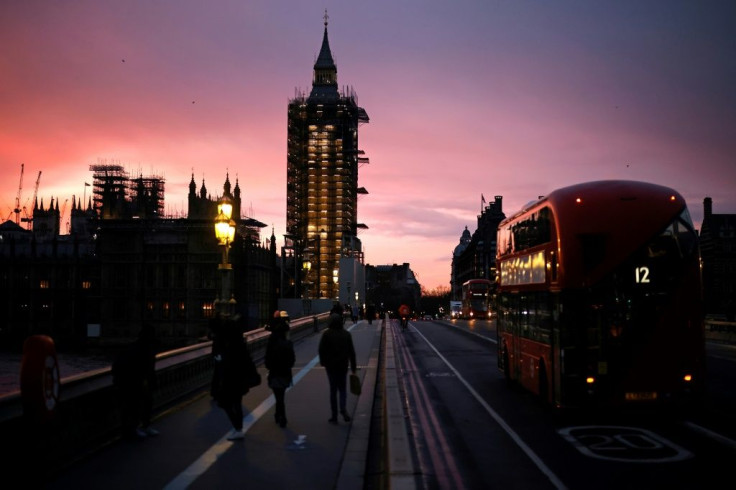UK Economic Growth Slows Sharply To 0.4% In October
Britain's economy, battered this year by coronavirus and now facing fresh fears of a no-deal Brexit, slowed sharply in October from the previous month, according to official data published Thursday.
Gross domestic product expanded by just 0.4 percent in October from September, chalking up growth for the sixth consecutive month, the Office for National Statistics said in a statement.
That marked a sharp slowdown from 1.1-percent expansion in September, while analysts warned of a difficult November when a second partial lockdown was imposed in England.
The ONS added on Thursday that GDP remains 7.9 percent below pre-pandemic levels in February -- and noted that the rate of recovery has slowed each month since June.
Output was also hit after more localised measures to control the virus were imposed in parts of northern and central England, as well as in Scotland and Wales.
"The UK economy has now grown for six months running but still remains around 8.0 percent below its pre-pandemic peak," said Jonathan Athow, deputy national statistician at the ONS.
"Public services output increased, while car manufacturing continued to recover and retail again grew strongly.
"However, the re-introduction of some restrictions saw services growth hit, with large falls in hospitality, meaning the economy overall grew only modestly."

Britain's initial Covid-19 lockdown sent the economy tanking into a record recession in the first half of this year.
The economy then enjoyed a historic third-quarter rebound on the back of easing curbs, but economists expect a fourth-quarter slump due to the impact of England's second partial lockdown in November -- and subsequent regional tiered restrictions in December.
"The economy got off to a slow start to the fourth quarter as it was affected by increasing pandemic-related restrictions on activity during October," said EY economist Howard Archer.
"GDP grew 0.4 percent month-on-month in October, which was the weakest expansion since the economy returned to growth in May after contracting 19.5 percent month-on-month in April in the immediate aftermath of the March 23 lockdown."
Meanwhile, Britain and the EU are running out of time to reach an agreement on a future trading relationship before a post-Brexit transition period finishes at the end of the year.
British Prime Minister Boris Johnson and European Commission chief Ursula von der Leyen agreed late Wednesday to decide by Sunday whether their Brexit talks are worth continuing.
However, a senior Number 10 source has warned that "very large gaps remain between the two sides" -- and it remains unclear whether those gaps can be bridged.
"Added to the 'very large gaps' that remain between the UK and EU in relation to Brexit negotiations, this underwhelming GDP data could see very large cracks appear in investor sentiment as the year draws to a close," warned Ayush Ansal, chief investment officer at hedge fund Crimson Black Capital.
"The economy grew in October but only just and this, coupled with the growing prospect of a no-deal Brexit, will make markets even more jumpy about the economic fallout that lies ahead."
© Copyright AFP 2024. All rights reserved.




















